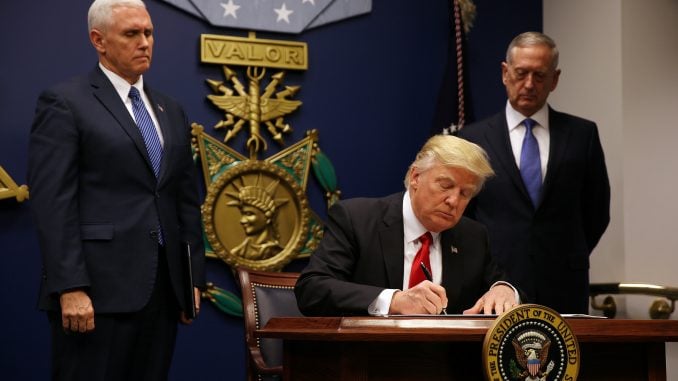
WASHINGTON, D.C. On Monday, a second U.S. appeals court, this one in San Francisco, ruled against President Donald Trump’s temporary travel ban on people entering the United States from six countries identified by the U.S. State Department as “countries of concern” for terrorist activities. The ruling largely upholds a lower court’s decision. The 9th U.S. Circuit Court of Appeals in San Francisco reviewed a March ruling by a Hawaii-based federal judge that blocked parts of Trump’s order. The ruling came after a separate court, the Richmond, Va.-based 4th U.S. Circuit Court of Appeals, on May 25 upheld a Maryland judge’s ruling blocking parts of the order.The decision comes as the Trump administration waits for a ruling from the U.S. Supreme Court. On June 1, Trump’s administration filed emergency applications with the nine justices seeking to undo the Richmond and Hawaii lower court rulings that blocked his March 6 order barring entry for people from Iran, Libya, Somalia, Sudan, Syria and Yemen for 90 days while the U.S. government implements stricter visa screening. The administration has said the order is needed to prevent terrorism in the United States.The court could act on the administration’s request as soon as later this week. The state of Hawaii on Monday urged the U.S. Supreme Court not to grant the Trump administration’s emergency request. Lawyers for Hawaii, which challenged Trump’s ban in court and won a nationwide injunction blocking it, said in court papers his executive order is a “thinly veiled Muslim ban.” Hawaii’s lawyers argued that without Trump’s campaign trail comments, the order may not violate the Constitution.In deciding whether to allow the ban to go into effect, the Supreme Court is set to weigh whether Trump’s comments as a presidential candidate can be used as evidence that the executive order was intended to discriminate against Muslims in violation of the U.S. Constitution’s First Amendment ban on the government favoring one religion over another. Trump during the 2016 presidential campaign called for a “total and complete shutdown of Muslims entering the United States.” Monday is the deadline for the ban’s challengers to respond to the administration’s request that the order be allowed to go into effect. The American Civil Liberties Union, which represents people challenging the ban in a separate Maryland case, is due to file its own response later on Monday. The administration has said courts should not second guess the president’s assertion that the ban was needed for national security reasons.



